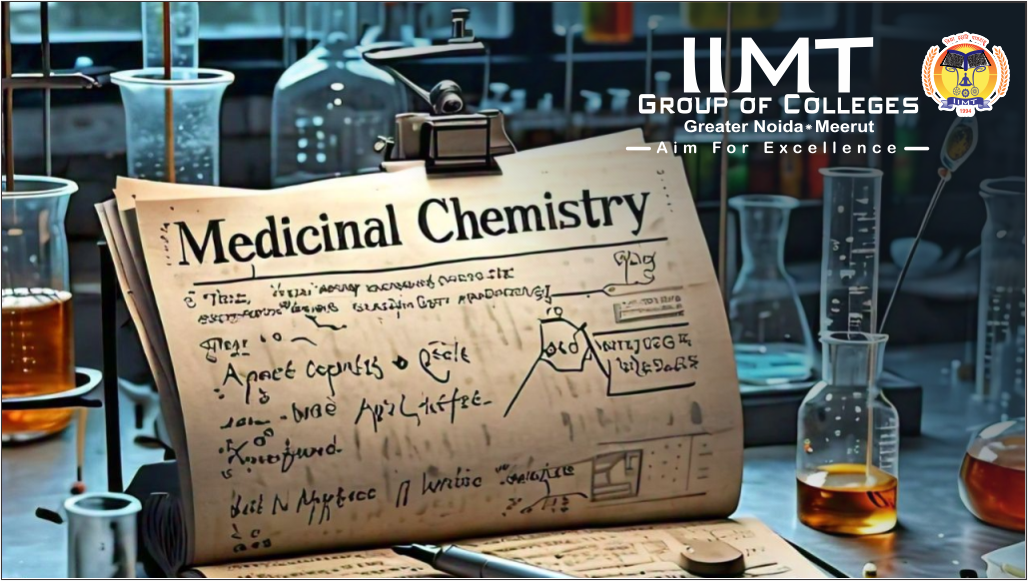Medicinal Chemistry: An Overview
 IImt College
IImt College
Medicinal Chemistry: An Overview
Medicinal chemistry is an interdisciplinary field that combines principles of chemistry, biology, and pharmacology to discover, design, and develop new therapeutic agents. The goal of medicinal chemistry is to identify compounds that can be used to prevent or treat diseases, while minimizing harmful side effects. This field plays a crucial role in drug discovery, where understanding the molecular structure, biological activity, and pharmacokinetics of potential drug candidates is essential.
The Role of Medicinal Chemistry in Drug Development
The process of drug development is long and complex, involving several stages that begin with the discovery of a lead compound and end with the production of a commercially available drug. Medicinal chemists are involved at every stage, from the initial identification of biologically active molecules to optimizing these compounds to improve their potency, selectivity, and safety.
Lead Discovery: The drug discovery process often begins with the identification of a "lead compound," which is a molecule that shows some biological activity against a target disease. Lead compounds can be discovered through various methods, such as high-throughput screening, natural product isolation, or rational drug design based on the structure of a known target.
Structure-Activity Relationship (SAR): Once a lead compound is identified, medicinal chemists use structure-activity relationship (SAR) studies to optimize its properties. SAR is a technique used to understand how the chemical structure of a compound affects its biological activity. By systematically modifying the lead compound, researchers can identify structural changes that enhance its potency, selectivity for the target, and stability.
Pharmacokinetics and Toxicology: In addition to optimizing a compound's biological activity, medicinal chemists must also consider its pharmacokinetic properties. This includes how the drug is absorbed, distributed, metabolized, and excreted by the body (ADME). Toxicology studies are also essential to ensure that the compound does not cause harmful side effects. A compound must have favorable pharmacokinetic properties to be effective in the body without causing toxicity.
Drug Design: Medicinal chemistry is closely linked to the field of drug design, where chemists use computational tools and molecular modeling to predict how a drug will interact with its target. By designing molecules with specific shapes and properties, medicinal chemists can improve the efficiency of drug development, often reducing the time and costs associated with traditional trial-and-error methods.
Applications of Medicinal Chemistry
Medicinal chemistry is pivotal in the development of drugs that treat a wide range of diseases. For instance, in the case of cancer, medicinal chemists design molecules that can selectively target cancer cells while sparing healthy cells. In infectious diseases, such as bacterial infections or viral diseases like HIV, the design of inhibitors that block the replication of pathogens is critical. Additionally, in neurological diseases like Alzheimer’s, medicinal chemists work to create molecules that can cross the blood-brain barrier and interact with specific receptors in the brain.
Challenges in Medicinal Chemistry
Despite the advances in medicinal chemistry, the development of new drugs remains a challenging endeavor. One significant hurdle is the issue of drug resistance, especially in the treatment of infections and cancer. As pathogens or tumor cells evolve, they may develop mechanisms to evade drug action, leading to the need for continual innovation in drug design.
Another challenge is the complexity of human biology. Diseases often involve multiple pathways and molecular interactions, making it difficult to develop single-drug therapies. Personalized medicine, which tailors treatments based on an individual’s genetic makeup, is an emerging area of medicinal chemistry aimed at overcoming this challenge.
IIMT College of Pharmacy in Greater Noida served as the venue for the top pharmacy college in delhi ncr. Many sectors are changing due to technology.
Conclusion
Medicinal chemistry is essential for the discovery and development of new therapeutic agents that improve human health. It involves the design and optimization of molecules with desirable biological activities and favorable pharmacokinetic profiles. Although there are significant challenges, such as drug resistance and the complexity of human diseases, advances in this field continue to drive the development of new treatments for a wide range of conditions, making it a cornerstone of modern pharmaceutical science.
Subscribe to my newsletter
Read articles from IImt College directly inside your inbox. Subscribe to the newsletter, and don't miss out.
Written by
